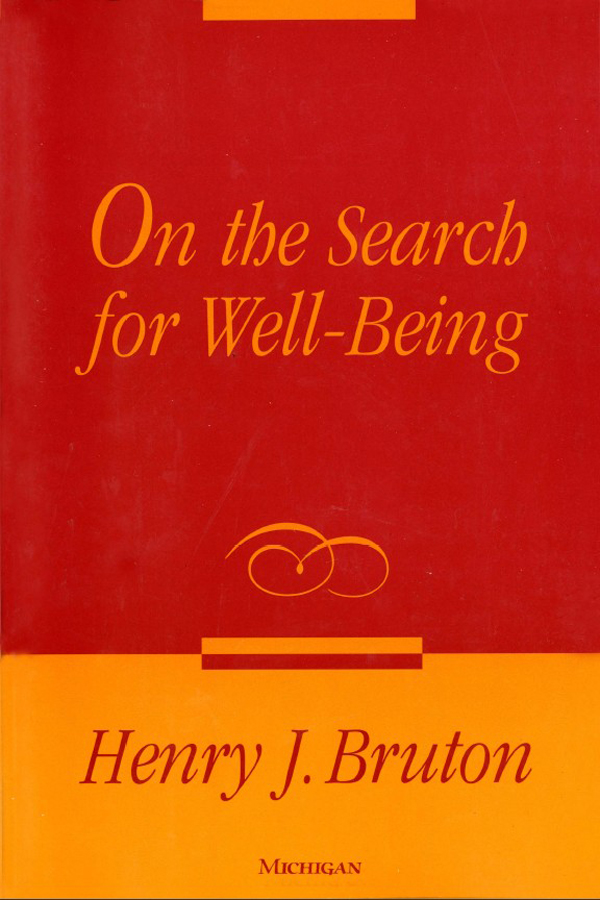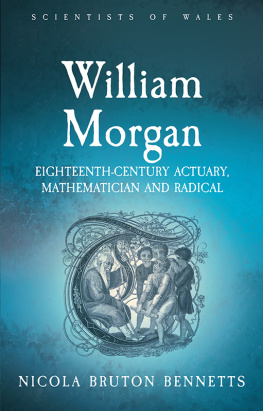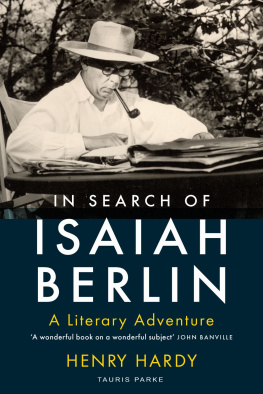Henry J. Bruton - On the Search for Well-Being
Here you can read online Henry J. Bruton - On the Search for Well-Being full text of the book (entire story) in english for free. Download pdf and epub, get meaning, cover and reviews about this ebook. publisher: The University Of Michigan Press, genre: Romance novel. Description of the work, (preface) as well as reviews are available. Best literature library LitArk.com created for fans of good reading and offers a wide selection of genres:
Romance novel
Science fiction
Adventure
Detective
Science
History
Home and family
Prose
Art
Politics
Computer
Non-fiction
Religion
Business
Children
Humor
Choose a favorite category and find really read worthwhile books. Enjoy immersion in the world of imagination, feel the emotions of the characters or learn something new for yourself, make an fascinating discovery.

- Book:On the Search for Well-Being
- Author:
- Publisher:The University Of Michigan Press
- Genre:
- Rating:5 / 5
- Favourites:Add to favourites
- Your mark:
- 100
- 1
- 2
- 3
- 4
- 5
On the Search for Well-Being: summary, description and annotation
We offer to read an annotation, description, summary or preface (depends on what the author of the book "On the Search for Well-Being" wrote himself). If you haven't found the necessary information about the book — write in the comments, we will try to find it.
On the Search for Well-Being — read online for free the complete book (whole text) full work
Below is the text of the book, divided by pages. System saving the place of the last page read, allows you to conveniently read the book "On the Search for Well-Being" online for free, without having to search again every time where you left off. Put a bookmark, and you can go to the page where you finished reading at any time.
Font size:
Interval:
Bookmark:

On the Search for Well-Being

H ENRY J. B RUTON
Ann Arbor
T HE U NIVERSITY OF M ICHIGAN P RESS
First paperback edition 2001
Copyright by the University of Michigan 1997
All rights reserved
Published in the United States of America by
The University of Michigan Press
Manufactured in the United States of America Printed on acid-free paper
Printed on acid-free paper
2004 2003 2002 2001 4 3 2
No part of this publication may be reproduced, stored in a retrieval system, or transmitted in any form or by any means, electronic, mechanical, or otherwise, without the written permission of the publisher.
A CIP catalog record for this book is available from the British Library.
Library of Congress Cataloging-in-Publication Data
Bruton, Henry J.
On the search for well-being / Henry J. Bruton.
p. cm.
Includes bibliographical references and index.
ISBN 0-472-10791-7 (alk. paper)
1. Economic development. 2. Developing countries. I. Title.
HD72.B78 1997
| 338.9dc20 | 99-40106 |
| CIP |
ISBN 0-472-08716-9 (pbk. : alk. paper)
ISBN13 978-0-472-10791-9 (cloth)
ISBN13 978-0-472-08716-7 (paper)
ISBN13 978-0-472-02419-3 (electronic)
For Frances
In this book I discuss those issues about development economics that I have found of particular interest, and that I believe to be of great importance in understanding why some nations are rich and others poor. I wish to emphasize that I do not seek to cover all aspects of this area of inquiry, nor have I sought to make a thorough literature review. Neither do I seek to cover all sides of the issues that I do address. It is genuinely a discussion of topics that I have worried with for some time in a way that I found helpful, and that are, for me, just plain exciting to study.
Why some nations are rich and others poor is, of course, one of the profound questions of our time, on a par, I would claim, with the physicist's great question, why is there a universe. It raises many theoretical issues that cut across numerous disciplinary boundaries, it has political implications that cover an exceedingly wide area, and it creates many policy matters with which decision makers must wrestle. On the real bottom line however, it is a great moral issue. A world in which some people have so much while millions of others spend most of their life starving is a world which few would defend. I trust that the discussion in this booklimited though it ismay add a bit to the understanding of this great question.
The world is messy. It has been said by many that the only theorem in economics is that there are no theorems in economics. In addition to messiness, there is great ignorance at every turn. Still the economics profession continues to like rigor and elegant models which usually require perfect knowledge of some kind or other. I do not object to elegance and rigor, but I push the idea, as strongly as I can, that the world is messy and ignorance is ubiquitous. Economists must, I suggest, seek to capture this messiness and ignorance in theories and arguments if we are to illuminate great questions. I have tried to illuminate, to the extent that I can, and accept the necessary messiness. And I recognize ignorance at every step in the argument. I acknowledge that I may well be unnecessarily messy and inelegant, but if that helps with illumination, it is a small price to pay.
I put considerable store on my vision. This rather potent word, maybe even pretentious word, is meant to distinguish between the details of my various arguments and the basic approach within which these arguments fall. I try to establish a way of thinking about the great question, and then I explore, examine, probe, and worry my way through a range of specific issues. This, I think, is a fruitful way to think about development. I hope that the reader finds it so.
It was noted above that the present effort is not to be looked upon as a review of literature. This should not be interpreted as meaning that I have not read. I have been reading development economics since President Harry S. Truman announced the United States foreign aid program in 1949. I have tried hard to indicate my debt to specific authors in those cases where I borrowed directly an idea or argument or data. More importantly, I am in debt to the great (and always rising) flow of books and articles for insights and observations and hints and models and histories and numerous other things that have been so crucial in the shaping of my thinking.
My more precise debt is to my colleagues in the Williams College economics department where I have taught and studied for more than three decades. Those who came and stayed for a long period and those who stayed only a few years have helped me enormously. Innumerable lunches, department seminars, office conversations, casual meetings in front of the mailboxes, and so on, have all taught me much. I have tried out much of what is here on my colleagues in one way or another. Much of what is helpful in this book is due to them, but none of the mistakes and weaknesses. The latter are all mine. I note this last not to be modest or perfunctory, but simply because it is true.
I am also grateful to the University of Michigan's Press's referees. Their suggestions, queries, doubts, were exceptionally helpful and led me to modify and rethink a number of issues. They too of course are not responsible for remaining weaknesses or errors.
Economics is the study of the relationship between the production, distribution, and consumption of goods and services on the one hand and individual and social well-being on the other. Growth economics is the study of how output increases and of the relationship between the increasing production and increasing well-being. Development economics studies why the economies of some countries have been unable to achieve and maintain economic growth, why they have been unable to perform in a way that contributes to sustained increases in individual and social well-being.
Since early in the nineteenth century, the output of goods and services per member of the population in a small number of Western European countries and, beginning a bit later, in northern North America, and, still later, in Japan has increased in a fairly sustained way. Conventional measures of total output per person in these nations have multiplied many times in the course of the last 175 or so years. It is less certain, but still seems appropriate to say, that this continuous increase in the availability of goods and services has, in fact, contributed to the enhancement of well-being of the peoples of these countries. More cautiously, one might say that these increasing availabilities of goods and services have made possible increased well-being. Caution is dictated until the notion of well-being can be made more explicit.
In the great majority of nations, with an even greater majority of the world's population, however, there had beenbefore 1950little or no increase in gross domestic product (GDP) per capita. In numerous instances per capita output did rise for a bit, but clearly there was no long-run sustained increase in the availability of goods and services. In a number of countries per capita output was lower in 1950 than in 1900 or even earlier.The level of per capita income in such countries has been very low compared to that required for health and longevity and compared to the level in the North. It is emphasized that the reason that these countries are poor or less developed is because they have not achievedhave not been able to put in placean economy which, as a matter of its routine operation, produces rising output per capita.
Font size:
Interval:
Bookmark:
Similar books «On the Search for Well-Being»
Look at similar books to On the Search for Well-Being. We have selected literature similar in name and meaning in the hope of providing readers with more options to find new, interesting, not yet read works.
Discussion, reviews of the book On the Search for Well-Being and just readers' own opinions. Leave your comments, write what you think about the work, its meaning or the main characters. Specify what exactly you liked and what you didn't like, and why you think so.







